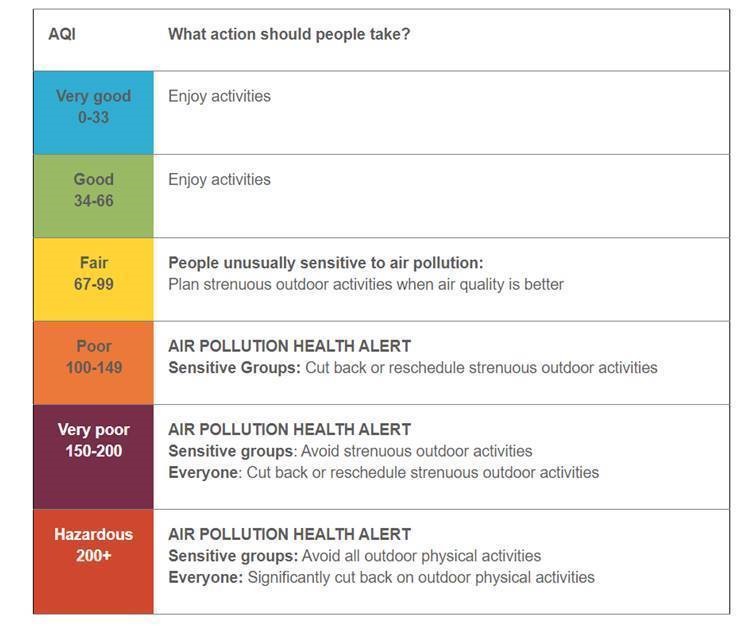AIR QUALITY WARNING & ALTERNATIVE TRAINING OPTIONS – Thursday, 21 November 2019

Today, and for the remainder of this week, the air quality in Sydney and for much of NSW is forecast to remain at POOR to HAZARDOUS due to the high level of smoke and air particles from the many bushfires across the state.
Football NSW therefore strongly recommends that all football activities that are due to take place on Thursday, 21 November 2019 in affected areas are postponed or cancelled for the health and safety of all participants. Organisers should then continue to monitor conditions throughout the rest of the week.
For alternative training activities and options refer to The Impact of Poor Air Quality and High Temperatures on the Football Player
Where a Club or Association decides to proceed with football activities, parents and/or players should make their own decision about whether they should participate and Clubs and Associations must not penalise anyone who chooses not to attend due to health concerns.
Clubs and Associations in other areas should monitor air quality levels in their local area and carefully consider whether football activities should proceed.
People from sensitive groups such as those with asthma, heart or lung disease, children and older adults should consider avoiding all outdoor activities.
MONITORING OF CURRENT CONDITIONS
Link to Current and forecast air quality – Sydney and NSW
Click on the particle level on the map for a list of air quality levels by suburb and region. (Note: Particles PM10 are dust and Particles PM2.5 are smoke)
For further Information about Air Pollution and Health CLICK HERE

- RISKS
People with asthma: exposure to air pollution might worsen your symptoms or trigger asthma attacks. Use your reliever medicine and check you have an up to date Asthma Action plan
- People with lung disease, such as chronic bronchitis (also called chronic obstructive pulmonary disease or COPD): exposure to air pollution might worsen your symptoms. Use your reliever medicine and see your doctor if symptoms don’t resolve.
- People with cardiovascular (heart) disease: exposure to air pollution might induce symptoms such as palpitations, chest pain or shortness of breath. If your symptoms persist or are severe, you should seek urgent medical advice from your doctor or nearest Emergency Department.


